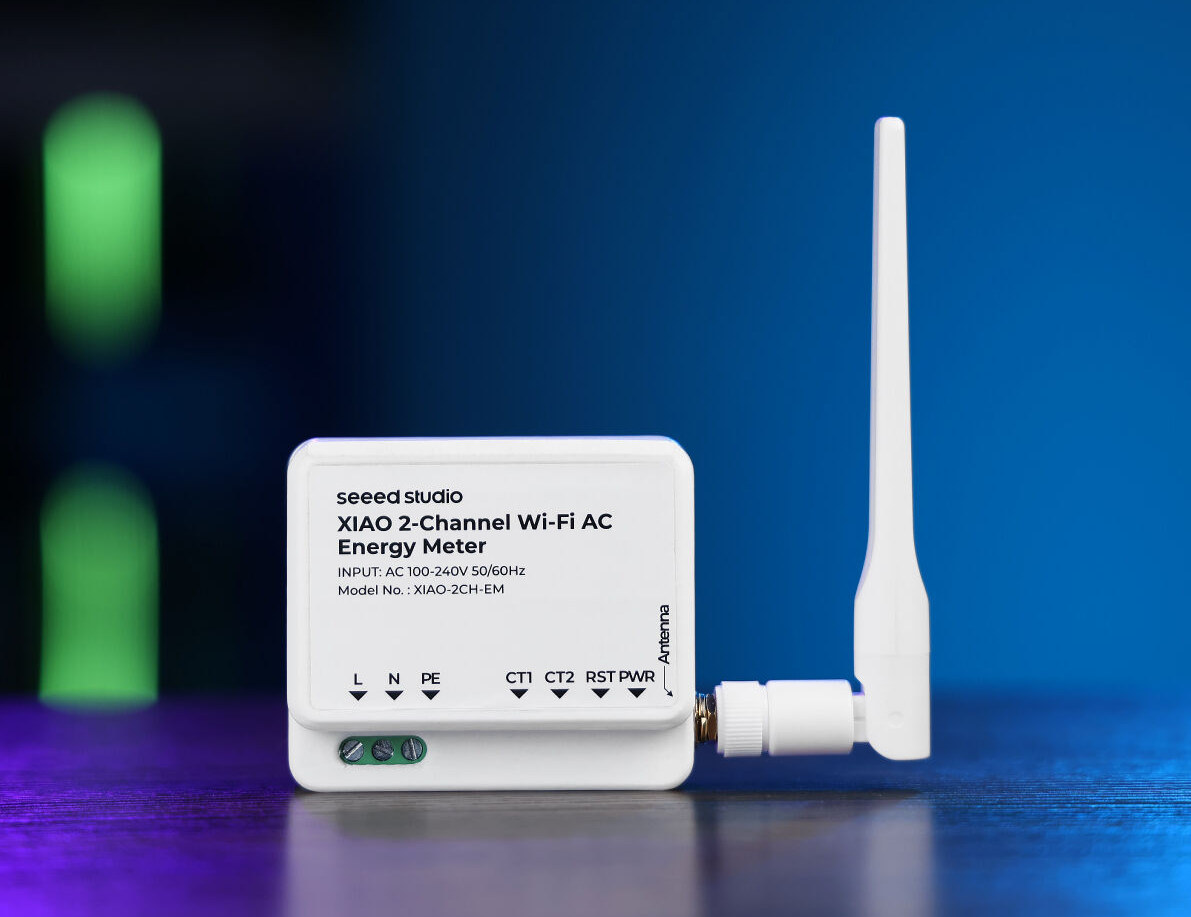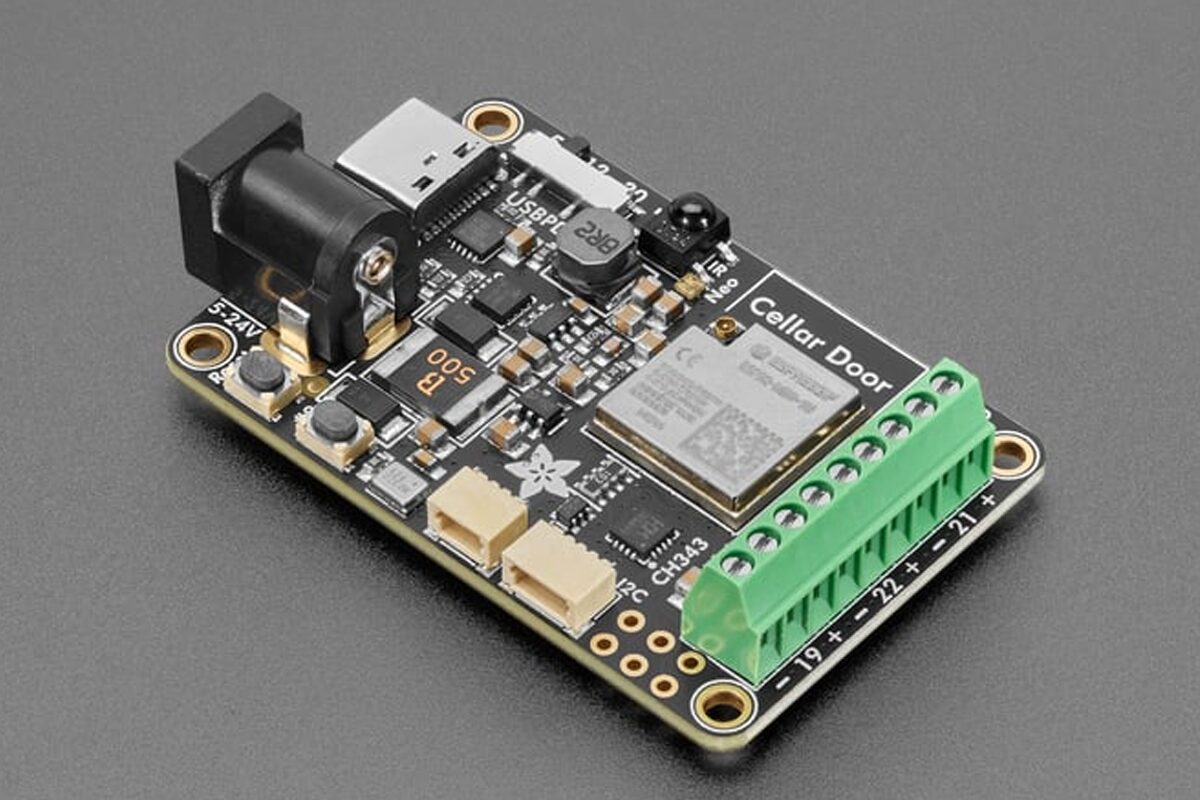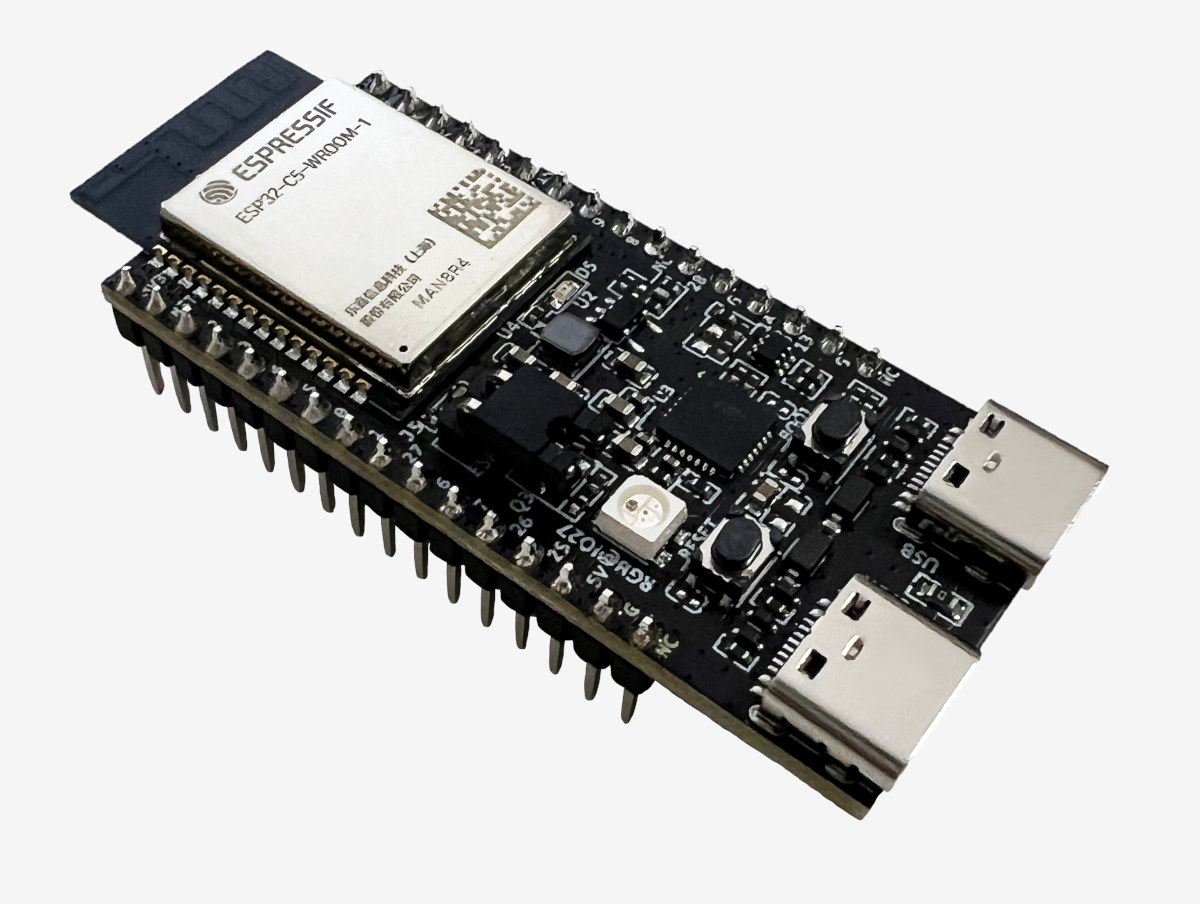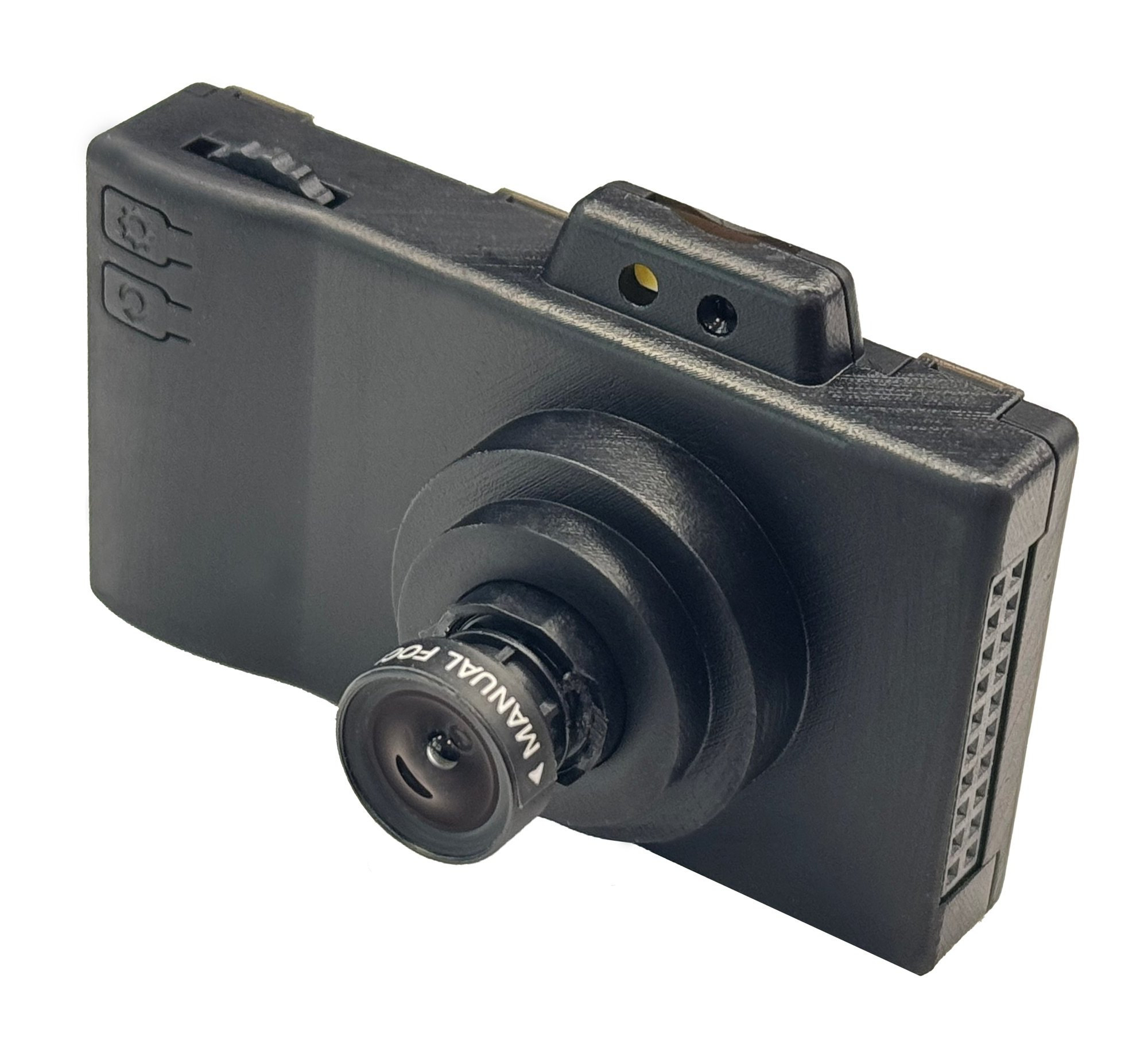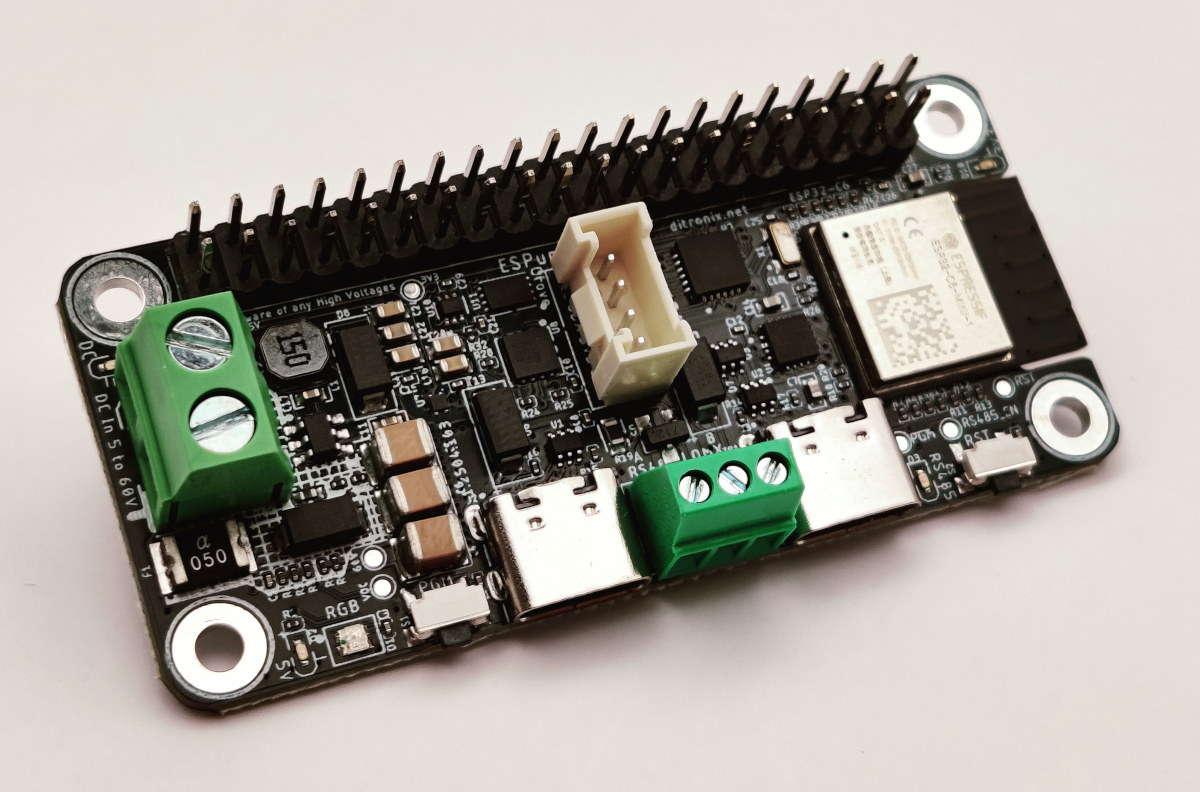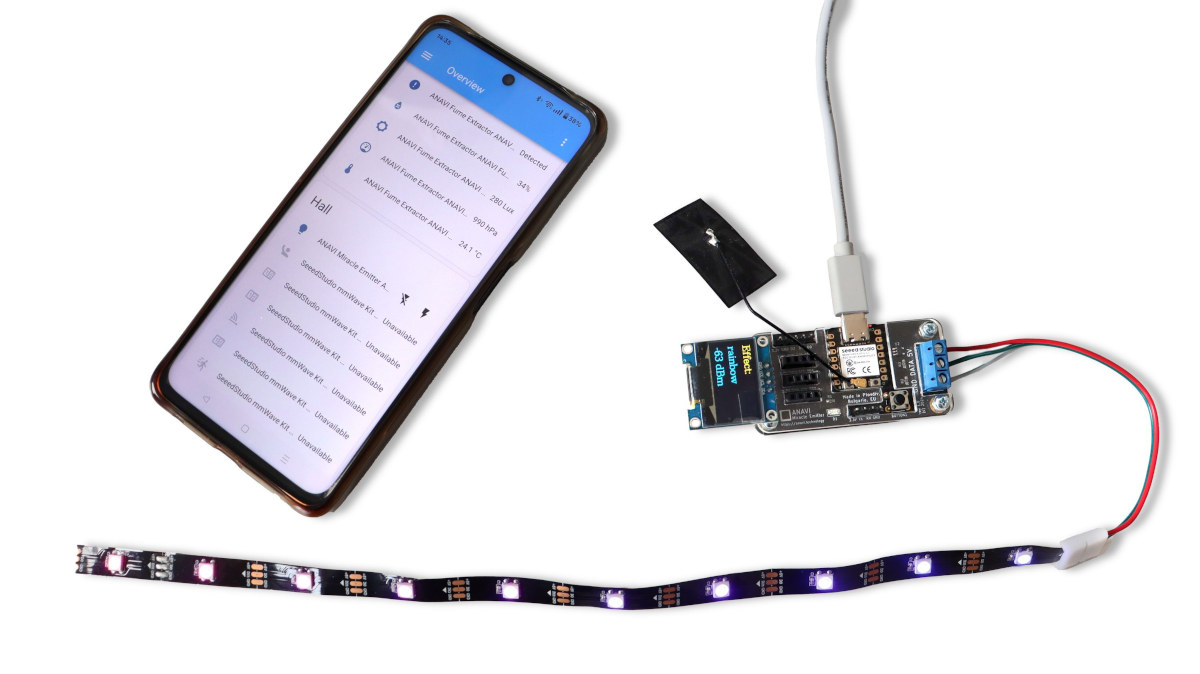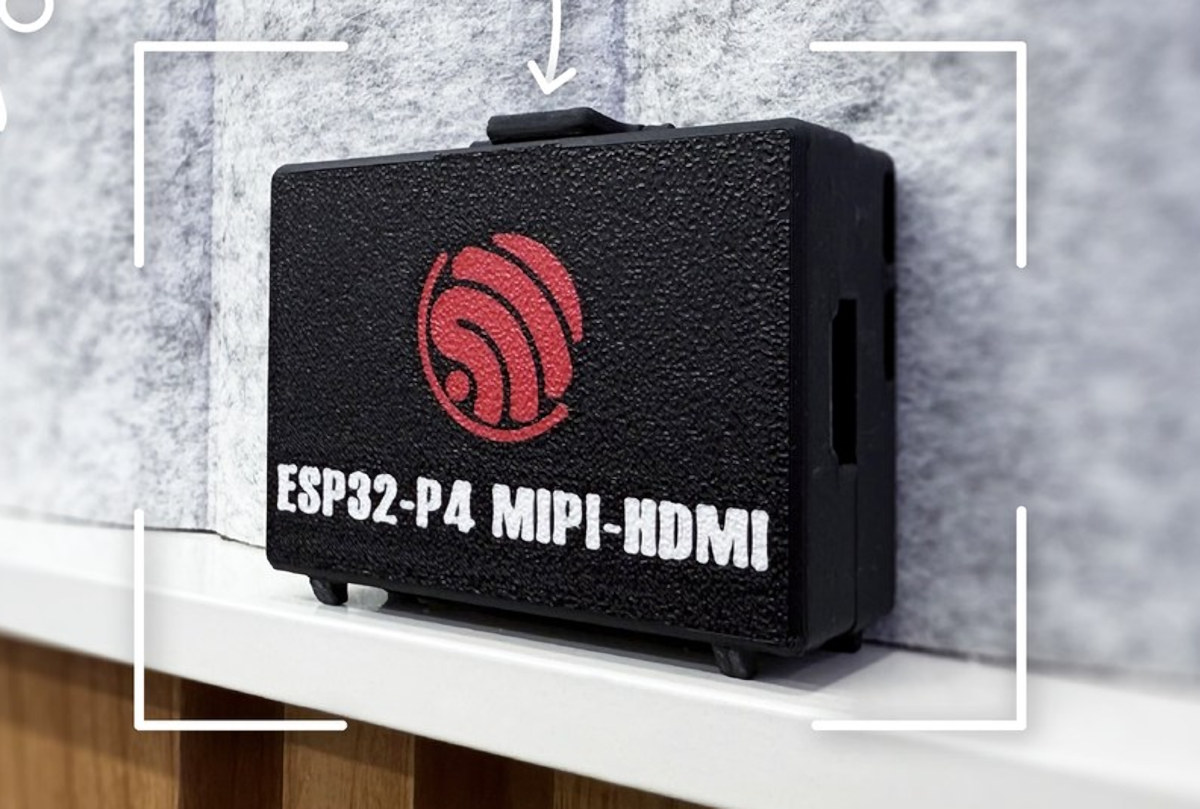Seeed Studio’s XIAO 2-channel Wi-Fi AC Energy Meter is an ESP32-C6 (XIAO ESP32-C6) powered power meter with two independent CT clamp (Current Transformer clamp) connectors to safely measure power consumption when placed around one of the wires from an AC cable. We reviewed the SONOFF POW Ring single-channel WiFi CT clamp power meter with eWelink and Home Assistant last year, and before that, we also covered models supporting multiple CT clamps, up to 16 clamps with the Emporia Vue Gen 2 energy monitor. The XIAO 2-channel Wi-Fi AC Energy Meter offers a middle ground with support for two CT clamps measuring up to 35A each. XIAO 2-channel Wi-Fi AC Energy Meter specifications: Wireless module – XIAO ESP32C6 board Wireless MCU – Espressif Systems ESP32-C6 CPU Single-core 32-bit RISC-V clocked up to 160 MHz Low-power RISC-V core @ up to 20 MHz Memory – 512KB SRAM, 16KB low-power SRAM Storage – […]
Adafruit Sparkle Motion – An ESP32-based addressable LED controller with four outputs, 100W USB-C power, and WLED/xLights support
The Adafruit Sparkle Motion is an ESP32-based LED controller board designed to drive addressable LEDs, including WS2812B, APA102, SK6812, LPD8806, UCS2904, and SM16704. It supports both WLED and xLights projects and features an onboard 100W USB-C PD port to drive even high-voltage LED setups. The board includes dual power input options (USB-C PD with 5/12/20V selection and 2.1mm DC jack), a 5A fuse, and level-shifted output terminals for controlling addressable LEDs. The board also features a built-in I2S digital microphone, IR receiver, Stemma QT I2C port, USB-serial with auto-reset, GPIO breakout pads, onboard NeoPixel and status LED, and multiple JST and terminal connectors for sensor and control integration. It comes pre-assembled with terminal blocks for easy wiring, making it suitable for applications such as wearable electronics, home decor lighting, audio-reactive displays, and remote-controlled installations. Adafruit Sparkle Motion Specifications: SoC – ESP32-S3 dual-core Xtensa LX7 MCU @ 240MHz with 2.4GHz Wi-Fi and […]
ESP32-C5 dual-band WiFi 6 SoC enters mass production, ESP32-C5-DevKitC-1 board launched for $15
Espressif Systems has just started mass production of the ESP32-C5 RISC-V wireless microcontroller with dual-band (2.4/5 GHz) WiFi 6, Bluetooth LE, and 802.15.4 (Zigbee, Thread) connectivity. The ESP32-C5-DevKitC-1 development is now available for about $15 on AliExpress, and should soon show up on the company’s Amazon store. So far, WiFi-capable Espressif microcontrollers have only supported 2.4 GHz WiFi since it’s cheaper and offers better range for IoT applications, but some applications may benefit from 5 GHz WiFi, so the company unveiled the ESP32-C5 dual-band WiFi 6 and BLE RISC-V MCU in June 2022. Design probably took longer than expected, but we noted documentation for an ESP32-C5 beta board in March 2024, and finally, the company has just announced that mass production has started. We’ll have a closer look at the ESP32-C5-DevKitC-1 board in this article, since it is different from the beta board. ESP32-C5-DevKitC-1 specifications: Wireless module – ESP32-C5-WROOM-1 SoC […]
Air Lab is a portable Wi-Fi & Bluetooth LE air quality monitor with an e-paper touchscreen display (Crowdfunding)
Networked Artifacts’ Air Lab is a portable air quality monitor based on ESP32-S3 Wi-Fi & Bluetooth LE wireless SoC, equipped with an e-paper touchscreen display, and plenty of sensors to measure CO2, temperature, relative humidity, air pollutants (VOC, NOx), and atmospheric pressure. The Air Lab ships with a rechargeable 1,500 mAh battery that will be good for about 21 days on a charge in passive mode (taking measurements every minute), and you can also power it over its USB-C ports. It includes a debug port for people wanting to change the firmware, and a GPIO header to connect additional sensors if required. Data can be visualized on the e-paper display or transmitted over BLE or MQTT for integration with Home Assistant. The company also provides a CSV export function and a web-based dashboard for data visualization. Air Lab specifications: Main module – ESP32-S3 module with PCB antenna for 2.4GHz WiFi […]
Espressif Systems ESP32-P4-EYE development kit looks like a camera
Espressif Systems’ ESP32-P4-EYE is a development kit designed for AI vision applications that looks like a standard camera. It combines an ESP32-P4 RISC-V microcontroller with an ESP32-C6 WiFi 6, BLE, and 802.15.4 SoC, and is equipped with a MIPI-CSI camera, a 2MP display, a microphone, and a MicroSD card to store photos or videos. There’s also a rotatory encoder to control the menu on the LCD or adjust the zoom, a fill/flash light, a few buttons, an LED, and support for either USB or battery power. The company says the ESP32-P4 camera devkit targets smart surveillance, vision-based edge AI, real-time image detection, and audio-visual IoT interfaces. ESP32-P4-EYE specifications: Microcontroller – ESP32-P4 MCU Dual-core RISC-V microcontroller @ 400 MHz with AI instructions extension and single-precision FPU Single-RISC-V LP (Low-power) MCU core @ up to 40 MHz GPU – 2D Pixel Processing Accelerator (PPA) VPU – H.264 and JPEG codecs support Memory […]
ESPuno Pi Zero ESP32-C6 board takes up to 60V DC input, offers RS-485 interface (Crowdfunding)
ESPuno Pi Zero is a Raspberry Pi Zero-sized board based on an ESP32-C6-MINI-1 WiFI 6, BLE, and 802.15.4 wireless module and an SMPS that allows up to 60V DC input via a 2-pin terminal block. The board also features two USB-C ports, one connected to the ESP32-C6 and the other to a CH343P USB-to-serial chip, a 40-pin GPIO header, a Grove connector, a 3-pin terminal block for RS-485, DMX, Profibus, and a few buttons and LEDs. ESPuno Pi Zero specifications: ESP32-C6-MINI-1-N4 or ESP32-C6-MINI-1U-N4 SoC – Espressif Systems ESP32-C6 single-core 32-bit RISC-V clocked up to 160 MHz 320KB ROM, 512KB SRAM, low-power RISC-V core @ up to 20 MHz CPU Single-core 32-bit RISC-V clocked up to 160 MHz Low-power RISC-V core @ up to 20 MHz Memory/Storage – 320KB ROM, 512KB SRAM Wireless – 2.4 GHz WiFi 6, Bluetooth 5.0, and 802.15.4 radio (for Thread/Zigbee) Storage – 4MB flash Antenna ESP32-C6-MINI-1-N4 […]
ANAVI Miracle Emitter – A WiFi and BLE RGB LED controller compatible with Home Assistant, WLED firmware (Crowdfunding)
ANAVI Miracle Emitter is an open-source hardware ESP32-C3 WiFi and BLE controller designed to control 5V addressable RGB LED strips, which works with Home Assistant over MQTT and also supports the popular WLED firmware to easily control the LED strip through a web interface. It also features four I2C expansion headers for sensors and a small OLED display, a UART header, and a GPIO header. It’s an update to Leon ANAVI’s Miracle Controller introduced in 2019 with an ESP8266. A lot of things have changed since then, and it’s gotten easier than ever to control RGB LED strips using open-source software and firmware. ANAVI Miracle Emitter specifications: Wireless Module – Seeed Studio XIAO ESP32C3 Wireless MCU – Espressif Systems ESP32-C3 single-core RISC-V microcontroller @ 160 MHz with 400KB SRAM, 384KB ROM, 4MB flash, Wi-Fi 4 & Bluetooth LE 5.0 connectivity Antenna – External u.FL antenna USB – USB Type-C port […]
ESP-HDMI-Bridge is an ESP32-P4 HDMI streaming adapter with USB, Ethernet, WiFi, and microSD card
ESP-HDMI-Bridge is an ESP32-P4-based HDMI streaming adapter based on Lontium Semiconductors’s LT8912B MIPI-DSI to HDMI bridge chip outputting MIPI-DSI video signal of ESP32-P4 to HDMI devices. It allows the user to connect a computer to an HDMI display or projector through USB, Ethernet, or WiFi, or use it directly as a digital signage player or live dashboard connected to an HDMI display. The current solution is based on the ESP32-P4-Function-EV-Board connected via its MIPI DSI connector to a 50x40mm board with the LT8912B bridge, a MIPI DSI input connector, LVDS and HDMI video outputs, and a 12-pin header with I2C, I2S audio, etc., with everything housed in a plastic enclosure. The best is to watch the video below, which shows various demos: USB to HDMI up to 720p30 or 1080p15 Ethernet to HDMI WiFi to HDMI up to 1080p40 using the ESP32-C6 2.4 GHz WiFi 6 module on the ESP-P4 […]


